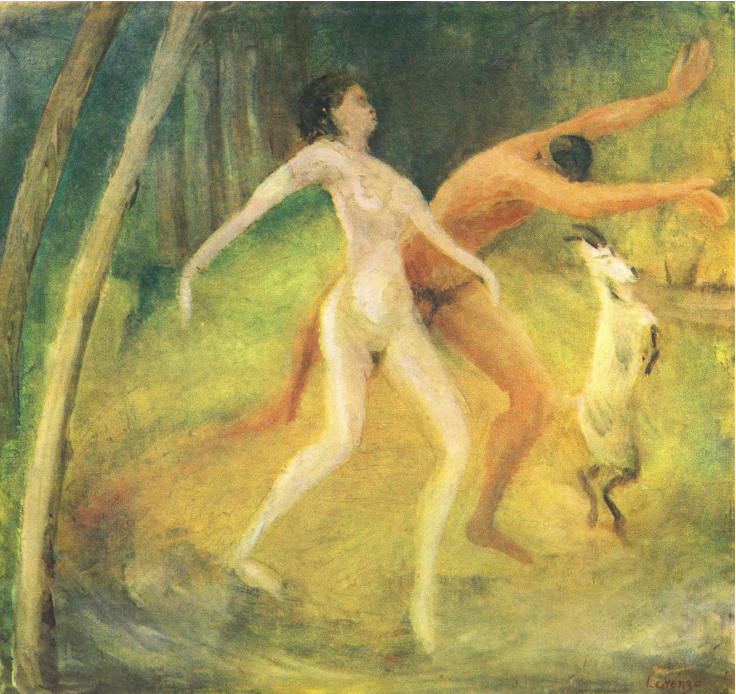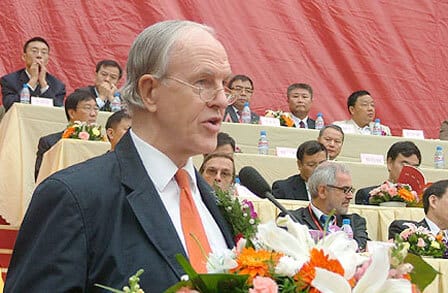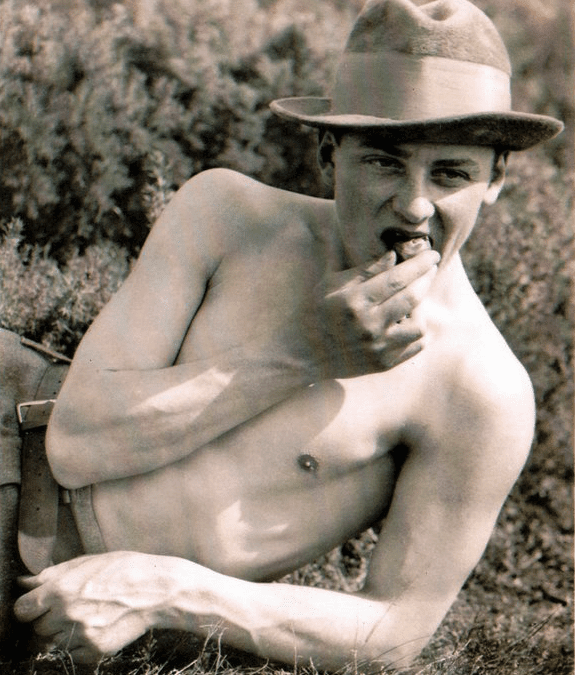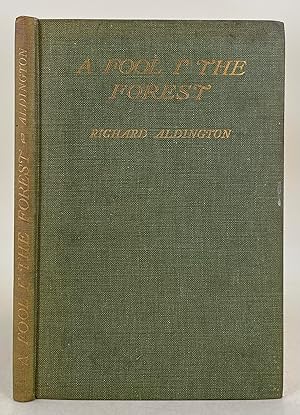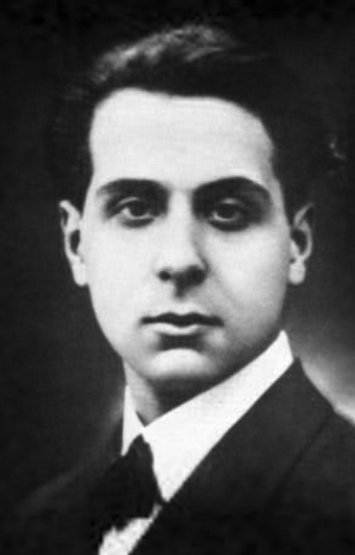Report of the Fortieth Meeting of the London D. H. Lawrence Group
Tim Gupwell
Lawrence and the Fourth Political Way: Rejecting Liberalism, choosing Freedom and Being
Tuesday 4th February 2025, by Zoom, 18.30-20.00 UK time
ATTENDERS
25 people people attended, including, from outside of England, Robert Bullock in Paris, Tim Giupwell in Perpignan, Shirley Bricout in Brittany, Marina Ragachevskaya in Gdansk, Shanee Stepakoff in Connecticut, and Julian Nalenz near Hamburg
INTRODUCTION
Tim introduced his talk as ‘an attempt to condense the last chapter of my recently completed PhD thesis, and other key passages, into one short presentation. Lawrence’s politics have often been dismissed out of hand. Salgado writes that “Leavis once remarked that we would not go to Lawrence for advice on political action’ (Salgado 243), but my argument here is that Lawrence’s political thinking is far more sophisticated, and more radical, than has previously been assumed. The book The Fourth Ideology, written by the controversial Russian political thinker Alexander Dugin, shows a way into Lawrence’s political thinking. Dugin argues that modern political discourse assumes that there are only three political ideologies possible (fascism, socialism and liberalism), and argues that since the first two options are flawed ideologies, only the latter (liberalism) is really a viable option. We can see this at play with Lawrence: critics have hitherto found it hard to place Lawrence on the political spectrum since he criticizes socialism and liberal democracy, and they have therefore assumed that he must have fascist tendencies (despite much evidence to the contrary). But Dugin (a Heideggerian) advocates a fourth way which is not fascism, socialism or liberalism, but based on being. I argue, using the German sociologist Erich Fromm’s distinction between “being” and “having”, that Lawrence is indeed a political thinker, but that he proposes, like Dugin, a fourth way, so different from the prevalent models that it has been misunderstood. Lawrence rejects fascism, socialism, and liberalism (and by implication, its successor, neo-liberalism which dates back to Walter Lippmann in the 1930s). In a world in crisis, Lawrence’s fourth way lends itself particularly well to a more ecological way of thinking. Donna Haraway suggests that if we are to bring modernity to heel and put an end to the “endless infernal alternatives” (Haraway), then we need to radically reconsider the narrative we are living by: “Think we must; we must think. That means, simply, we must change the story. The story must change” (Haraway 44). Something much more radical is required—for Lawrence it is a society based on being. I ask what he means when he advocates an aristocracy. Why does he criticize democracy and universal rights? How is his attitude towards democracy ambivalent? I discuss Lawrence’s rejection of individualism and competition as a model for society, and a redefinition of what it means to be free.
READING
‘Introduction’ to Dostoevsky’s The Grand Inquisitor (In Introductions and Reviews)
‘Aristocracy’ (in Reflections on the Death of a Porcupine)
BIOGRAPHY
Tim Gupwell, currently teaching in Perpignan University in France, has just completed his Ph.D. on the philosophy of D. H. Lawrence, entitled Searching for Clues: the Philosophy of D. H. Lawrence in his Non-Fiction. This thesis, which focuses almost entirely on the totality of Lawrence’s voluminous non-fictional writings, argues that Lawrence’s philosophy is perhaps first and foremost a hermeneutic one, but that Lawrence also has refined views about the nature of perception, the nature of freedom, and political matters. Indeed, the solutions Lawrence proposes remain largely relevant today, and he can in many ways be seen as a precursor of modern ecological thought. Tim’s research interests also include the intellectual background of the early twentieth century, Modernism and Modernity, ecological thought, travel fiction, and periods of crisis and social unrest.
PRESENTATION
Tim opened with the assertion that Lawrence does not contradict himself anywhere near as much as is often asserted (to the point of having become a critical dogma).
Moreover, his political ideas are highly relevant to our current situation of crisis: ‘if we carry on in this way, we will be wiped out’. He cited Lawrence in Movements of European History as saying: ‘The world is in a bad way. It is in the grip of a hopeless bassesse, lowness, commonness. Nations are slowly strangling one another in “competition”. The cancer of finance spreads through the body of mankind. Individuals are diseased with the same disease. To get money, and to spend money, nothing else remains. And with it goes all the strangling, and the bullying, and the degradation, the sense of humiliation and worthlessness of life, which is the bitterest of all’ (MEH 266:28).
Tim combined these points by urging that Lawrence be taken seriously as a political thinker, and recommended the chapter by Howard J. Booth (‘Politics and Art’) in The Edinburgh Companion to D. H. Lawrence and the Arts (edited by Catherine Brown and Susan Reid), which does the same. He acknowledged that it did not help the acknowledgment of Lawrence as a political thinker that he could not be easily placed on the mainstream political spectrum. He adduced, as helpful to thinking about Lawrence’s politics, the contemporary political thinker and Heideggerian scholar Alexandr Dugin, who (in his 2009 book The Fourth Political Theory) distinguished ‘four ideologies’: liberalism, fascism, socialism and ‘being’. Tim said that Lawrence made repeated criticisms of the first three (and indeed of –isms per se, cf. RDP 81:34), but that he did advocate ‘being’ (related to Heidegger’s Dasein).
Tim found similarly helpful the distinction made by the German thinker Erich Fromm (in his 1976 To Have or to Be?) between the modes of living of ‘being’ and of ‘having’. Only the first permits true relationship, renewal, and the finding of meaning, and – according to Lawrence – true democracy, as opposed to the fake democracy of possession. He went on to adumbrate Lawrence’s distinction between ‘force’ (which imposes will) and ‘power’ (which is divinely aristocratic). Lawrence perceived that resistance to the (fascistic) first had contaminated responses to the second. He admired the generosity of true (as opposed to jealous and class-combative) socialism, but condemned Socialism as he found it in the world. Lawrence found liberalism to have a superficial – because negative, individualist – conception of freedom which contrasted with his own, more profound, positive and communitarian conception, that did not involve fraternité or égalité, and might involve submission to an admired other.
Neo-liberalism, which Tim argued had its roots even within Lawrence’s lifetime, was implicitly condemned by Lawrence still more strongly, relying as it does on the engineering human souls to think of all aspects of life in terms of investment, output and competition.
Dugin’s vision of the fourth ideology is one in which ‘life is more important than growth’, and a religious attitude towards life can flourish. It is also one of plurality and toleration – an embrace of the multiplicity of humankind, and of each group’s unique perspectives on totality – such as is felt by Mr Noon when he stands in the valley of the Isar looking Eastwards and is ‘unEnglished’.
What this fourth way might mean in practice was suggested by those things that Tim claimed that neo-liberalism rejected: ‘a return to more local communities, to greater autonomy, less alienated work, a reduced use of technology and energy, and hence less pollution—in short, the solutions that many might consider today to be part of the way forward.’
DISCUSSION
Terry Gifford asked Tim to expand on his argument that Lawrence doesn’t contradict himself. Tim did not deny that Lawrence had expressed different views at different times on certain issues, but argued that the principles which Lawrence most valued – and which we might most value in him – he maintained consistently over his career (a consistency all the more striking because of his many other changes of affect and circumstance). Tim thought that the characterisation of Lawrence as self-contradictory had become a ‘lazy commonplace’ which obscured this fact.
Michael Bell challenged that Lawrence was offering a philosophical-cum-religious world view which simply did not exist on the plane of practical politics: ‘Heidegerrian philosophy isn’t on the political plane, it is a yardstick thereof.’ He said that ‘millions would agree’ with Lawrence’s and Dugin’s yardstick, but that the ‘Fourth way’ is misnamed because it is not a ‘way’ in the same sense that fascism, socialism and liberalism are. Tim responded that this depended on how one defined ‘practical’ – as existent, or as functional and sustainable. In the prescriptive sense, our current system is not practical, and part of the problem is that too many solutions have been discredited by being classified as beyond the bounds of ‘practical’ politics. Julian Nalenz concurred that everything that relates to how we live with each other should be considered to be political, and mentioned his experience of a utopian commune in Sweden.
John Pateman posited that, of all the ‘-isms’ which Lawrence claimed that he rejected, the one to which his ideas were consistently the closest was socialism (albeit not of the revolutionary kind). John also thought that the tripartite classification of fascism, liberalism and socialism was unhelpful, because the first two were fundamentally the same, being both forms of capitalism. He saw no hard boundary between the third and fourth ways, and added that Lenin, like Lawrence, made a distinction between force and power. Tim concurred that Lawrence’s ‘true democracy’ was close to socialism.
Marina Ragachevskaya objected to the adduction of Dugin, in the light of what she characterised as his recent turn to reprehensible views with regard to Ukraine. Tim responded that one was not obliged to agree with all aspects of a thinker in order to cite some of their work, ‘otherwise we would have no Heidegger’, and suggested that exaggerated criticisms of Dugin were sometimes made.
Robert Bullock ventured that: ‘although Lawrence gave much more importance to Being, he had towards the end of his life come round to accepting that there could be no Being without some degree of Having (perhaps because he had finally admitted to himself that he was dying and would need to ensure Frieda had enough money to live on after his death) … Hence, for example, why he decided to invest in shares on the American Stock Market in 1928 and give serious thought to buying a house somewhere near Cassis or Bandol after leaving Rottach in September 1929, not to mention his drive to boost his earnings with private editions of The Escaped Cock, The Paintings of D.H. Lawrence and his unexpurgated Pansies. He was also keen to have Titus bring out a second print-run of the Paris edition of Lady Chatterley and was insistent that copies of The Escaped Cock sold in the USA should not be sold for under $10.’
Readers are invited to compare this report to that of John Pateman’s own presentation to the London Lawrence Group, in October 2024.
